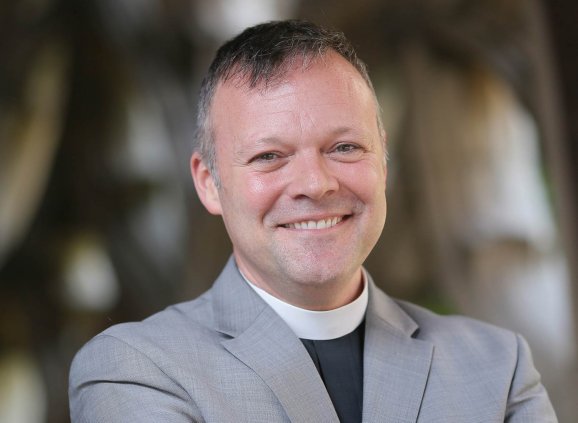
- Education Forums
The Silent Treatment

“Are you listening? Or are you formulating? Because you can’t do both at once!”
That was the question my adviser had for me one morning in the summer of 2006 during my 10-week pastoral training at Bridgeport Hospital. We were in the middle of a pastoral care role playing exercise. Her question was pitched to expose an unfortunate tendency of mine: to drift out of the conversation in progress in order to frame an appropriately sensitive and trenchant response. The whole dynamic can be, of course, personally defeating and interpersonally destructive. But for those of us who are voluble by nature, the temptation persists.
I’m not sure I am alone with this temptation. Often in the context of church meetings and small groups, hands are in the air long before the present speaker has concluded her point. “To finish another’s sentence” is not always an indicator that both speakers are simpatico, but often an unintentional undercutting of a point the first speaker is making, or a careless redirection of the group’s focus. In a broader cultural way, this dynamic has persisted (to name a recent example) in the response by some white people to the statement “Black Lives Matter.” To insist in responding that “all lives matter” is to willfully eliminate the space for focused reflection that the first statement aims to create. The reason politics and faith are so often taboo subjects in polite company is that too often such conversations are about one party (fully formed and hence no longer receptive) attempting to “win” or to “educate” the other.
My colleague Rita Powell tells me that, in the Native American Lakota culture of the American plains, conversational dynamics are quite different, punctuated by marked silences that would seem awkward in the context of a Trinity Church meeting. Often when I consider silence in the context of my own faith, it has a “macro” quality: prolonged silence in Lenten liturgies, or extended silence as part of a structured retreat. I wonder, though, how incorporating what I’ll call “micro-silences” into my own conversations might bring new life and deeper connection. What would life be like if we waited for each other to finish before we began to “formulate” and speak? What if we felt welcomed, and welcomed others, to claim the silent time needed to think before responding? Just as one needn’t become vegan in order to eat better, one needn’t necessarily become a monastic in order to claim silence as an integral part of daily living and conversing. “Just remember,” another pastoral care instructor told me once. “The one talking is usually the one receiving the care.”
See you in church!
Patrick
- January 2024
- December 2023
- November 2023
- October 2023
- September 2023
- June 2023
- May 2023
- April 2023
- March 2023
- February 2023
- January 2023
- December 2022
- November 2022
- October 2022
- June 2022
- May 2022
- April 2022
- March 2022
- February 2022
- January 2022
- November 2021
- October 2021
- September 2021
- August 2021
- July 2021
- June 2021
- May 2021
- April 2021
- March 2021
- February 2021
- January 2021
- December 2020
- November 2020
- October 2020
- September 2020
- August 2020
- July 2020
- March 2020
- February 2020
- January 2020
- December 2019
- November 2019
- October 2019
- September 2019
- August 2019
- July 2019
- June 2019
- May 2019
- April 2019
- March 2019
- February 2019
- January 2019
- December 2018
- November 2018
- October 2018
- September 2018
- August 2018
- July 2018
- June 2018
- May 2018
- April 2018
- March 2018
- February 2018
- January 2018
- December 2017
- November 2017
- October 2017
- September 2017
- July 2017
- May 2017
- April 2017
- March 2017
- February 2017
- January 2017
- December 2016
- November 2016
- October 2016
- September 2016
- August 2016
- May 2016
- April 2016
- March 2016
- February 2016
- January 2016
- December 2015
- November 2015
- October 2015
- October 2013
- September 2013
At "Educational Forums," enrich your spiritual journey by exploring our resources including videos of lectures, essays by priests, and other pieces about our faith, our church, and what it means to be a disciple of Jesus in the 21st century.


Comments